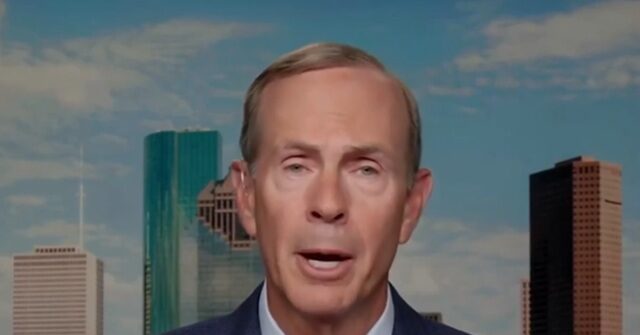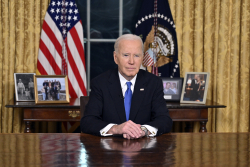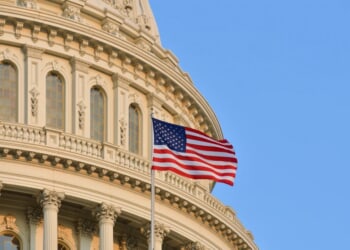During an appearance on FNC’s “Sunday Morning Futures,” Chevron CEO Mike Wirth praised the Trump administration’s economic policies and downplayed the threat of a U.S. recession.
However, China’s influence over oil-rich Venezuela remains a concern, Chevron’s top executive said.
BARTIROMO: And joining me now with more on America’s energy independence, in this “Sunday Morning Futures” exclusive, is the chairman and CEO of Chevron, Mike Wirth.
Mike, great to have you this weekend. Thank you so much for being here.
MIKE WIRTH, CEO, Chevron: Maria, good morning. It’s great to be with you.
BARTIROMO: I want to get started on the macro story. I know you had earnings on Friday, and we will talk about that in a moment.
But the macro story is being questioned by many because of the contraction we saw in the GDP this week, as well as the fact that oil prices have been going down, cracking the $60-a-barrel level.
Mike, what are you seeing in terms of the economy right now?
WIRTH: Well, we’re really not seeing in the data that we look at from our business signs that would signal a recession is imminent.
I think the first-quarter GDP numbers were distorted by some of the trading patterns that occurred relative to imports in the quarter and how those are treated in the calculation. We’re still seeing pretty robust demand through the first quarter.
BARTIROMO: Let’s talk Venezuela for a moment, Mike, because I know that you have been the last major American outpost in Venezuela and has operated in country for over 100 years.
But, of course, President Trump is basically saying no more Venezuela. What do you want to tell us about this Venezuela situation? Can you give us an update?
WIRTH: Well, there’s two real implications, I think, that are important for people to consider. One is on energy security.
A good portion of Venezuelan oil has historically come to the United States. Refineries is on the Gulf Coast are designed to run that specific type of oil. And so it’s very important for energy security in the U.S. The changes in the rules mean that that oil won’t flow to the U.S. now, so making us less secure.
China is actually the largest buyer of Venezuelan oil today. And I think the discussions that you reference, Venezuelan government officials have been in China very recently encouraging China to buy more. And so, as the largest buyer today, the policies could drive even more of that trade to China.
The second implication is very important, I think, as a national security implication. And, as you mentioned, we’re the only American company that remains on the ground in Venezuela, which sits right across the Gulf of America from our country.
And if we were to leave, as others have, the oil production continues and American companies are replaced by companies from other countries. And, historically, that’s been Chinese companies, Russian companies, and others that are not necessarily in America’s interest to see our hemisphere ceded to companies from other countries that we don’t have the same kinds of relationships with.
And so I think those are the two big issues that we need to bear in mind as we navigate this policy landscape.
BARTIROMO: This is a very important point that you make, especially since China is Venezuela’s biggest creditor. And this is sort of China’s M.O., become a country’s biggest creditor and ultimately dominate.
And I don’t think the U.S. or the Trump administration wants to see China dominating another country.
WIRTH: Well, you’re right. We have seen this playbook before in Africa, in Latin America, and Central Asia.
BARTIROMO: Right.
WIRTH: And China has created a stronger presence, stronger influence, and control over economies and governments around the world through using their economic assets and position to do so.
And I think that’s an important issue that is something that the administration is thinking about, and I think it’s very appropriate for them to bear that in mind.
BARTIROMO: Mike, while I have you, let me get your take on Iranian oil, because, of course, the Iranians have been selling oil on the black market.
President Trump put out a tweet last week saying this: “All purchases of Iranian oil or petrochemical products must stop now. Any country or person who buys any amount of oil or petrochemicals from Iran will be subject to immediately secondary sanctions. They will not be allowed to do business with the United States of America in any way, shape, or form.”
What is your take on that, Mike?
WIRTH: The point you make, Maria, is, I think, a very important one, which is, sanctions are just words unless they’re truly enforced.
And we have seen in the prior administration sanctions on Iran, sanctions on Russia, and then enforcement was not necessarily a priority. That oil continued to come into the market, and the mechanisms that were described to try to enforce the sanctions were not effective.
And so the oil continued to flow. The revenue continued to flow. And I think the current administration is signaling a different posture, that the sanctions are intended to bite.
BARTIROMO: Despite what has been a tight regulatory backdrop, have you seen any ease-up in terms of permitting, Mike? I know that’s where the regulatory strangleholds have been.
WIRTH: Well, I will tell you, we have had very productive conversations with Cabinet officials on this issue. They are working hard to improve cycle times on permitting, and I’m very confident that we will see that happen.
So, in addition to the administrative changes that we’re seeing within agencies today, we’re strong supporters of legislative fixes that put in more permanent and durable permitting reform that will help our economy invest and grow across all types of manufacturing infrastructure and revitalize our economic competitiveness.
BARTIROMO: Mike, it’s great to have you. Thank you so much for joining us.
WIRTH: Maria, it’s great to be with you.
BARTIROMO: The chairman and CEO of Chevron, Mike Wirth.
Thank you, sir.
















